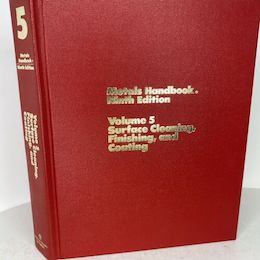
-----
Mirror Quality Aluminum Polishing
Q. Hello, I saw a letter from a vendor wanting to know where to get mirror quality polished aluminum. I have the same question. I was actually wondering what is used to do that, if I wanted to myself. Does anyone have a clue on the proper material?
Mike Easton- TUCSON,ARIZONA,US
2000
A. Hi Mike.
You usually start with mechanical polishing and buffing; but there are mirrors, and then there are mirrors...
If you are looking for the reflective quality of the reflectors on outdoor lighting, indirect lighting fixtures, and doctor's and dentist's examination lights, the overwhelming majority are produced by bright dipping (boiling hot nitric-phosphoric acid) then anodizing. If you need more perfect specularity and the highest degree of reflectivity, as in an actual wall mirror or telescope mirror, then electropolishing of very pure aluminum is done. We have many threads on those topics if you search the site for "bright dip aluminum" and "electropolish aluminum". Good luck.

Ted Mooney, P.E.
Striving to live Aloha
finishing.com - Pine Beach, New Jersey
Ted is available for instant help
or longer-term assistance.
2000
Electropolishing vs. R5 Brite Dip
Q. What is the difference between electropolishing aluminum and say 201 R5 Brite dipping?
Dianne MickeyAluminum - North Carolina
2005
9th Edition, Vol. 5
"Surface Cleaning, Finishing & Coating"

on eBay or Amazon
or AbeBooks
(affil link)
A. Hello Dianne,
In terms of process, electropolishing of aluminum, like electropolishing of any other metal, involves applying electricity to the part to cause its asperities to dissolve into the solution and leave a smooth reflective surface. Whereas R5 bright dipping involves using nitric-phosphoric acid, without electricity, to chemically polish the aluminum. In terms of results, bright dipping is less expensive and is ideal for many products including reflectors for lamps and lights of all sorts; but electropolishing, especially of very high purity aluminum, provides the ultimate in reflectivity and specularity for precision items Vol. 5 of the ASM Metals Handbook has an excellent chapter on these subjects.
Good luck.

Ted Mooney, P.E.
Striving to live Aloha
finishing.com - Pine Beach, New Jersey
Ted is available for instant help
or longer-term assistance.
2005
Q, A, or Comment on THIS thread -or- Start a NEW Thread